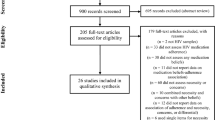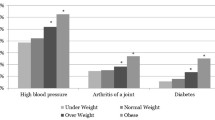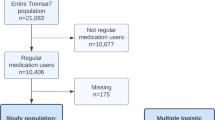Abstract
Background: Cost-related medication non-adherence may be influenced by patients’ perceived importance of their medications.
Objectives: This exploratory pilot study addresses three related but distinct questions: Do patients perceive different levels of importance among their medications? What factors influence perceptions of medication importance? Is perceived importance associated with perceived worth of medications, and does expense impact on that association?
Methods: Study participants included individuals aged ≥60 years who were taking three or more prescription drugs. Semi-structured, in-person interviews were conducted to measure how patients rated their medications in terms of importance, expense and worth. Factors that influenced medication importance were identified using qualitative analysis. Ordinal logistic regression analyses were employed to examine the association between perceived importance and perceived worth of medications, and the impact of expense on that association.
Results: For 143 prescription drugs reported by 20 participants, the weighted mean rating of medication importance was 8.2 (SD 1.04) on a scale from 0 (not important at all) to 10 (most important). Patients considered 38% of these medications to be expensive. The weighted mean rating of worth was 8.4 (SD 1.46) on a scale from 0 (not worth it at all) to 10 (most worth). Three major factors influenced medication importance: drug-related (characteristics, indications, effects and alternatives); patient-related (knowledge, attitudes and health); and external (the media, healthcare and family caregivers, and peers). Regression analyses showed an association between perceived importance and perceived worth for inexpensive medications (odds ratio [OR] 2.23; p = 0.002) and an even greater association between perceived importance and perceived worth for expensive medications (OR 4.29; p < 0.001).
Discussion: This study provides preliminary evidence that elderly patients perceive different levels of importance for their medications based on factors beyond clinical efficacy. Their perception of importance influences how they perceive their medications’ worth, especially for medications of high costs. Understanding how patients perceive medication importance may help in the development of interventions to reduce cost-related non-adherence.





Similar content being viewed by others
References
Briesacher BA, Gurwitz JH, Soumerai SB. Patients at-risk for cost-related medication nonadherence: a review of the literature. J Gen Intern Med 2007; 22(6): 864–71
Kaufman DW, Kelly JP, Rosenberg L, et al. Recent patterns of medication use in the ambulatory adult population of the United States: the Slone survey. JAMA 2002; 287(3): 337–44
Heisler M, Langa KM, Eby EL, et al. The health effects of restricting prescription medication use because of cost. Med Care 2004; 42(7): 626–34
Safran DG, Neuman P, Schoen C, et al. Prescription drug coverage and seniors: findings from a 2003 national survey. Health Affairs 2005; Suppl Web Exclusives: W5-152–W5-166
Steinman MA, Sands LP, Covinsky KE. Self-restriction of medications due to cost in seniors without prescription coverage. J Gen Intern Med 2001; 16(12): 793–9
Leibowitz A, Manning WG, Newhouse JP. The demand for prescription drugs as a function of cost-sharing. Soc Sci Med 1985; 21(10): 1063–9
Lohr KN, Brook RH, Kamberg CJ, et al. Use of medical care in the Rand Health Insurance Experiment: diagnosis- and service-specific analyses in a randomized controlled trial. Med Care 1986; 24 (9 Suppl.): S1–87
Goldman DP, Joyce GF, Escarce JJ, et al. Pharmacy benefits and the use of drugs by the chronically ill. JAMA 2004; 291(19): 2344–50
Tseng CW, Brook RH, Keeler E, et al. Cost-lowering strategies used by Medicare beneficiaries who exceed drug benefit caps and have a gap in drug coverage. JAMA 2004; 292(8): 952–60
Harris BL, Stergachis A, Ried LD. The effect of drug copayments on utilization and cost of Pharmaceuticals in a health maintenance organization. Med Care 1990; 28(10): 907–17
Piette JD, Heisler M, Wagner TH. Cost-related medication underuse among chronically ill adults: the treatments people forgo, how often, and who is at risk. Am J Public Health 2004; 94(10): 1782–7
Soumerai SB, Ross-Degnan D, Avorn J, et al. Effects of Medicaid drug-payment limits on admission to hospitals and nursing homes. N Engl J Med 1991; 325(15): 1072–7
Tamblyn R, Laprise R, Hanley JA, et al. Adverse events associated with prescription drug cost-sharing among poor and elderly persons. JAMA 2001; 285(4): 421–9
Boardman AE, Greenberg DH, Vining AR, et al. Cost-benefit analysis: concepts and practice. Upper Saddle River (NJ): Prentice Hall, 1996
Mitchell RC, Carson RT. Using surveys to value public goods: the contingent value method. Baltimore (MD): Johns Hopkins Press, 1989
Davis TC, Long SW, Jackson RH, et al. Rapid estimate of adult literacy in medicine: a shortened screening instrument. Fam Med 1993; 25(6): 391–5
Davis TC, Michielutte R, Askov EN, et al. Practical assessment of adult literacy in health care. Health Educ Behav 1998; 25(5): 613–24
Glaser B, Strauss AL. The discovery of grounded theory: strategies for qualitative research. Chicago (IL): Aldine, 1967
Gilbert N. Researching social life. London: Sage Publications, 1995
Miles MB, Huberman AM. Qualitative data analysis: an expanded sourcebook. London: Sage Publications, 1994
Long J, Freese J. Regression models for categorical outcomes using stata. 2nd ed. College Station (TX): Stata Press, 2005
Tjia J, Givens J, Karlawish J, et al. Beneath the surface: discovering the unvoiced concerns of older adults with type 2 diabetes mellitus. Health Educ Res 2008; 23(1): 40–52
Guest G, Bunce A, Johnson L. How many interviews are enough? An experiment with data saturation and variability. Field Methods 2006; 18: 59–82
Weiler SC, Romney AK. Systematic data collection. Qualitative research methods. Vol. 10. Newbury Park (CA): Sage Publications, 1988
Acknowledgements
No sources of funding were used to assist in the preparation of this study. During part of this study, Dr Lau was supported by a K-01 career development award from the National Institutes of Health (grant no.: 5K01AG027295-02). The authors have no conflicts of interest that are directly relevant to the content of this study.
The authors are very grateful to Mr Scott Anderson, Ms Theresa Kowalski, Ms Shalini Singh, Mr Andrew T. Harris and Dr Adnan Arseven for their assistance throughout this project. The authors also sincerely thank Dr Kelly Michelson for her comments on an earlier version of this article.
An earlier version of this paper was presented at the Gerontological Society of America 60th Annual Scientific Meeting in San Francisco, CA, USA on 18 November 2007.
Author information
Authors and Affiliations
Corresponding author
Rights and permissions
About this article
Cite this article
Lau, D.T., Briesacher, B.A., Mercaldo, N.D. et al. Older Patients’ Perceptions of Medication Importance and Worth. Drugs Aging 25, 1061–1075 (2008). https://doi.org/10.2165/0002512-200825120-00007
Published:
Issue Date:
DOI: https://doi.org/10.2165/0002512-200825120-00007




